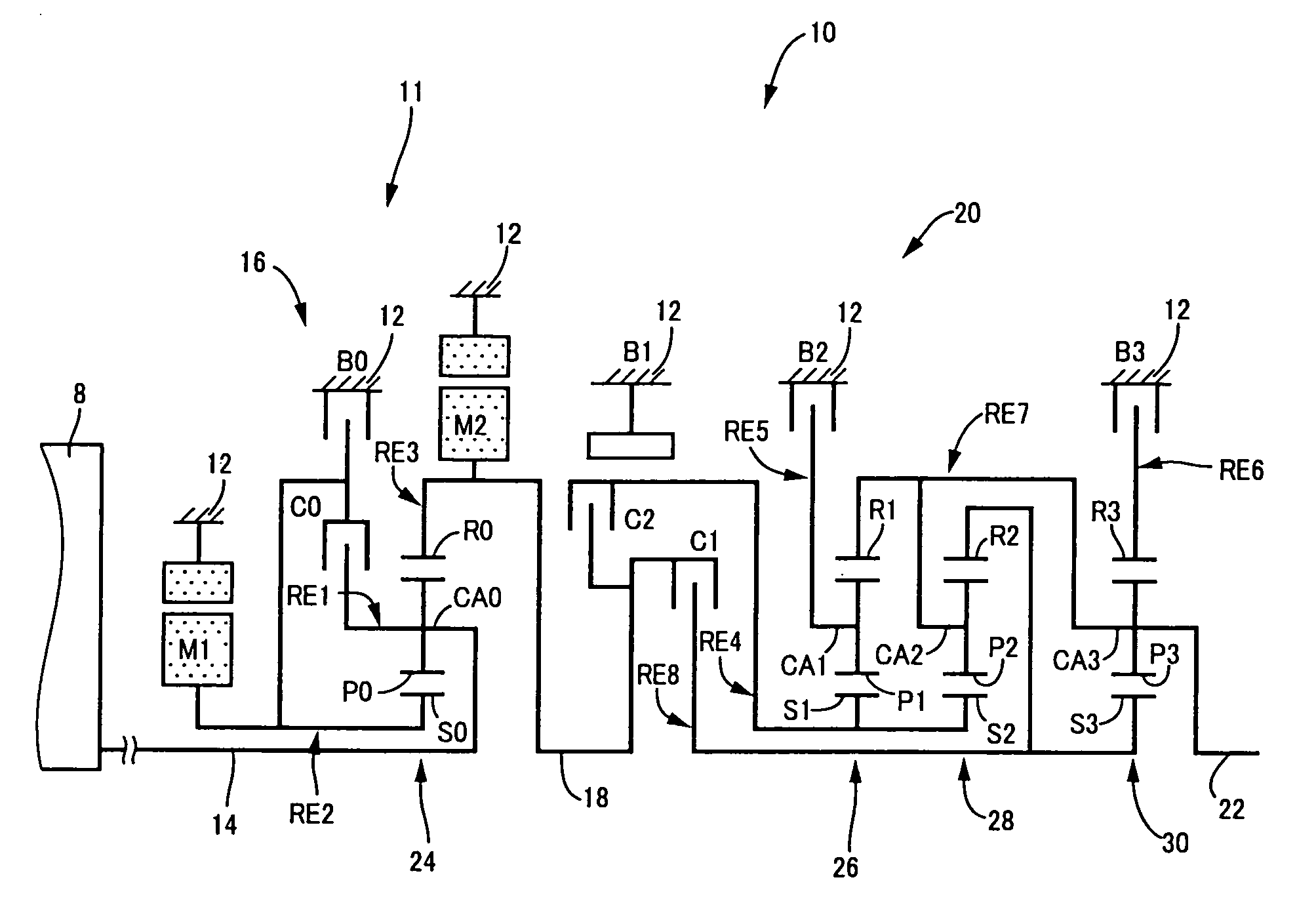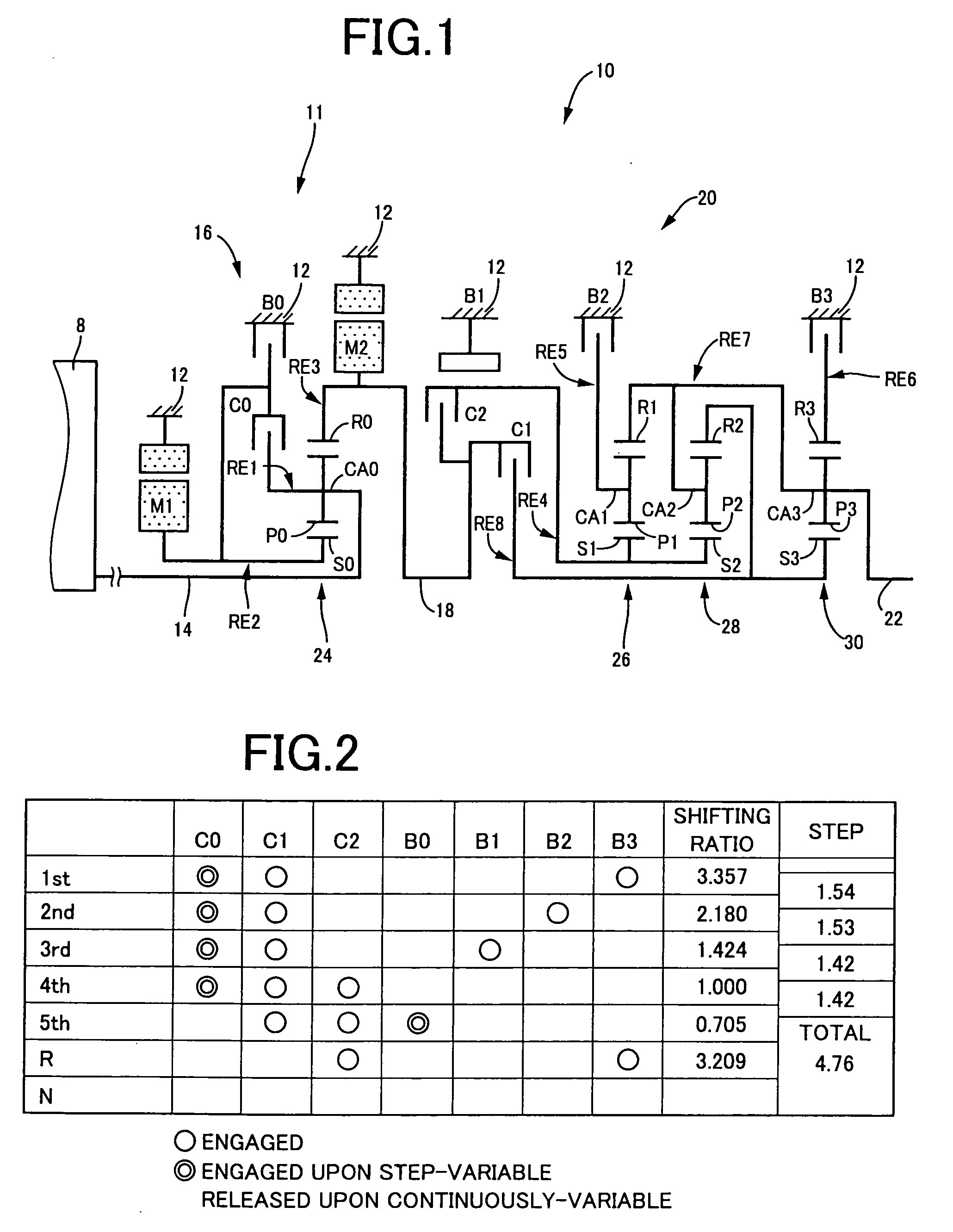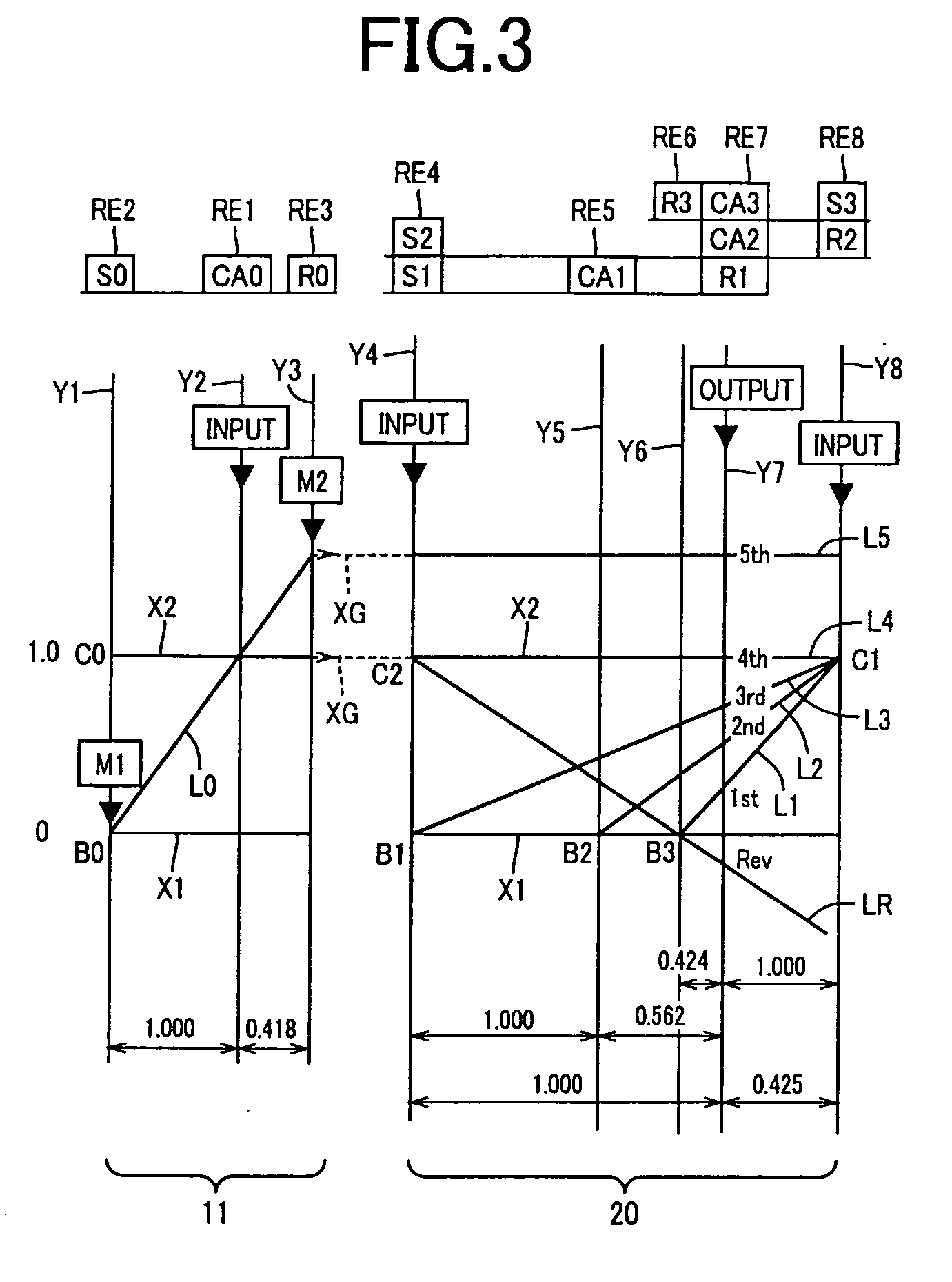Control device for vehicular power transmitting apparatus
a control device and transmission device technology, which is applied in the direction of electric propulsion mounting, machines/engines, instruments, etc., can solve the problems of preventing limiting the operation state of electric motors, and limiting the output torque output of electric motors, so as to reduce the risk of resonance phenomena, the effect of shortening the time and avoiding the occurrence of resonance phenomena
- Summary
- Abstract
- Description
- Claims
- Application Information
AI Technical Summary
Benefits of technology
Problems solved by technology
Method used
Image
Examples
embodiment 1
[0027]FIG. 1 is a skeleton view illustrating a shifting mechanism 10, forming part of a power transmitting apparatus for a hybrid vehicle, to which a control device of one embodiment according to the present invention is applied. As shown in FIG. 1, the shifting mechanism 10 includes an input shaft 14 serving as an input rotary member, a differential portion 11 directly connected to the input shaft 14 or indirectly connected thereto through a pulsation absorbing damper (vibration damping device) not shown, an automatic shifting portion 20 connected via a power transmitting member (corresponding to an output shaft of differential mechanism) 18 in series through a power transmitting path between the differential mechanism 11 and drive wheels 38 (see FIG. 6) to serve as a step-variable type transmission, and an output shaft 22 connected to the automatic shifting portion 20 as an output rotary member, all of which are disposed in a transmission casing 12 (hereinafter briefly referred to...
embodiment 2
[0148]FIG. 12 is another collinear chart illustrating a relative rotation speed of the rotary elements of the differential portion 11, and explaining a control for decreasing the engine rotation speed NE by the first electric motor M1. In this embodiment, a control operation for stopping the engine 8 performed during the vehicle running at a predetermined vehicle speed V will be explained. Specifically, this control is applied to, for example, a case where the vehicle state is switched from an engine running area shown in FIG. 7 to a motor running area, when the vehicle is running in the engine running mode during the decelerating i.e. slowdown vehicle speed.
[0149]In this embodiment, the engine stop controlling means 112 allows the switching brake B0 and the switching clutch C0 to be suitably engaged (or semi-engaged) according to a running state, upon control for the engine stopping. Thus, the engine rotation speed NE quickly decreases to pass through the resonance point in the sho...
PUM
 Login to View More
Login to View More Abstract
Description
Claims
Application Information
 Login to View More
Login to View More - R&D
- Intellectual Property
- Life Sciences
- Materials
- Tech Scout
- Unparalleled Data Quality
- Higher Quality Content
- 60% Fewer Hallucinations
Browse by: Latest US Patents, China's latest patents, Technical Efficacy Thesaurus, Application Domain, Technology Topic, Popular Technical Reports.
© 2025 PatSnap. All rights reserved.Legal|Privacy policy|Modern Slavery Act Transparency Statement|Sitemap|About US| Contact US: help@patsnap.com



